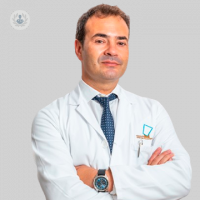Response to major doubts about laryngeal cancer
Written by:
 What are the symptoms of laryngeal cancer?
What are the symptoms of laryngeal cancer?
Laryngeal cancer may manifest with different symptoms start according to the same location in this body. The most common is the dysphonia or hoarseness, ie the alteration in his voice.
What factors increase your appearance?
Undoubtedly, the main risk factor is smoking. The alcohol acts as an adjuvant agent, "promoting" the carcinogenic action of snuff.
There are other risk factors but are anecdotal. The vast majority of patients with laryngeal cancer are current or former smokers.
Is it possible to prevent cancer of the larynx?
The main recommendation to prevent laryngeal cancer is smoking cessation. It is vital to insist on the early diagnosis and the prognosis of these tumors depends greatly on the time they are detected.
A key recommendation is that all patients who smoke, more than 50 years and hoarseness of more than 15 days, must be evaluated by a professional in Otolaryngology .
What is the treatment for laryngeal cancer?
Treatment depends on the stage of the cancer at the time of diagnosis and, of course, the characteristics of the patient. Basically, surgery and radiation therapy (with or without chemotherapy) are treatment options.
Are there alternative treatments to chemotherapy or radiation therapy?
The alternative to these options is surgery. Each patient must be evaluated individually to optimize and find the best treatment.
In early stages, surgery provides good results and is less invasive partial technical development and use of technologies such as laser. In advanced tumors, we must resort to more aggressive surgical techniques that have traditionally provided a good cure rates.


